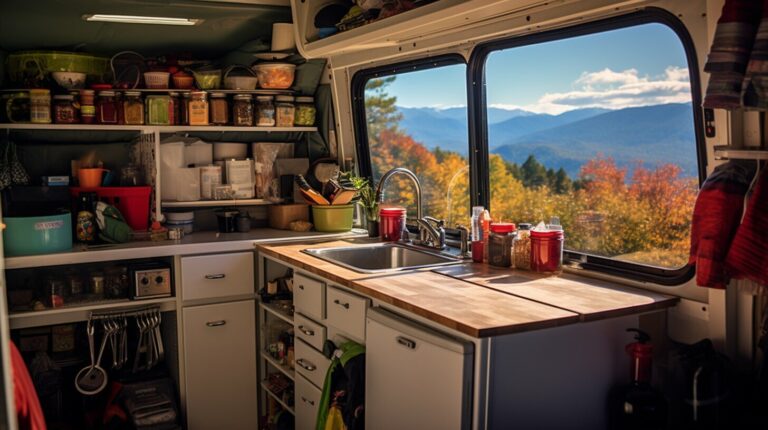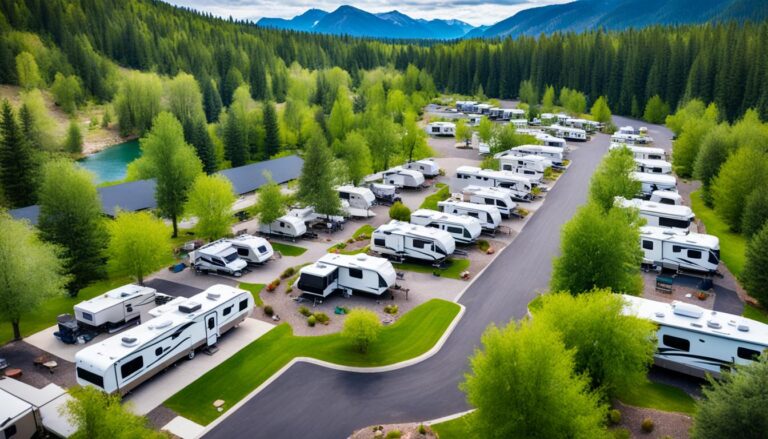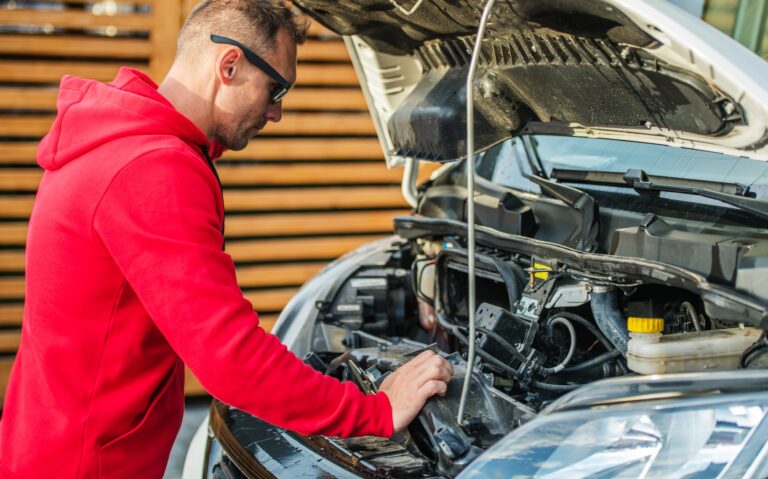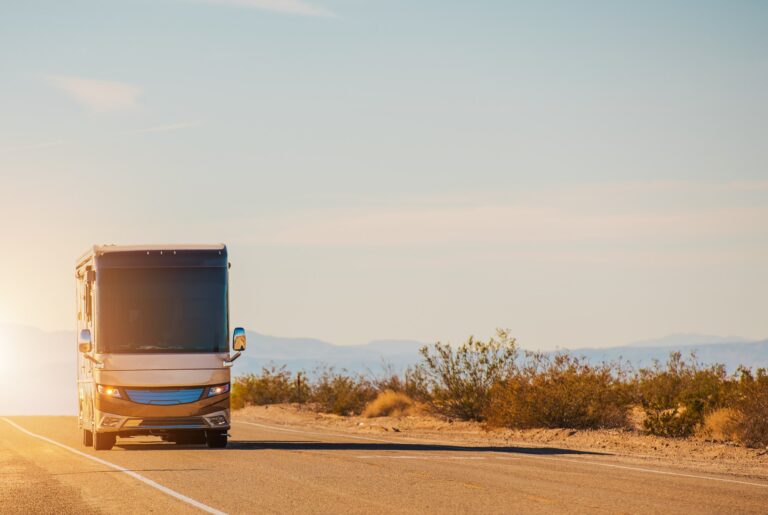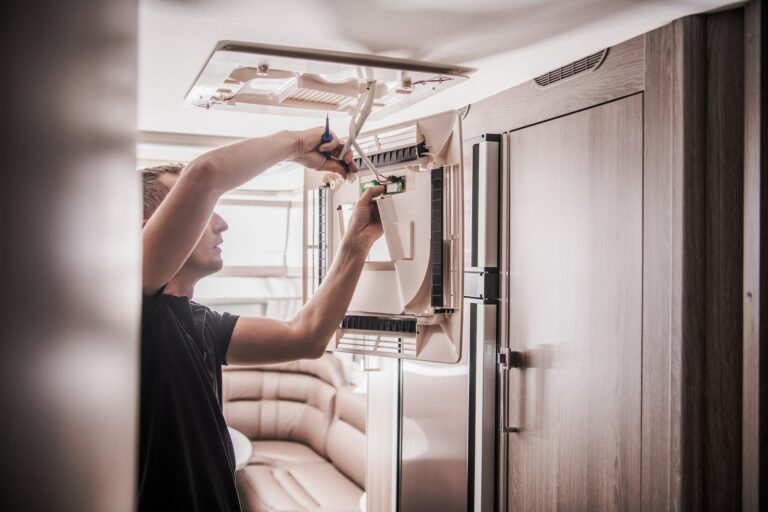Embarking on your first RV adventure is an exciting milestone, but it also comes with new responsibilities and safety considerations. As a first-time RVer, it’s essential to be well-informed about RV safety to ensure a smooth and enjoyable journey. In this comprehensive guide, we’ll explore crucial safety tips for both on the road and at the campsite, so you can confidently navigate your new home on wheels.
1. Familiarize Yourself with Your RV
Before hitting the road, it’s crucial to become well-acquainted with your RV and its various systems. A thorough understanding of your vehicle will help you operate it safely and confidently.
Key steps to familiarize yourself with your RV:
- Read your RV’s owner’s manual to learn about its features, maintenance requirements, and troubleshooting tips.
- Practice driving your RV in a safe, open area before venturing out on a long trip. Get a feel for turning, braking, and backing up, as well as how your RV handles in various road conditions.
- Learn how to properly use your RV’s leveling system, as unlevel RVs can cause issues with appliances and create an unstable living environment.
- Familiarize yourself with your RV’s electrical, water, and propane systems, and learn how to safely operate and maintain them.
- Understand your RV’s weight limits, including the Gross Vehicle Weight Rating (GVWR) and the Gross Axle Weight Rating (GAWR), to avoid overloading your vehicle.
2. Perform Regular Maintenance and Inspections
Proper maintenance and routine inspections are crucial for keeping your RV in good working order and ensuring a safe trip.
Essential maintenance tasks and inspections:
- Regularly check your RV’s tire pressure and condition, as underinflated or damaged tires can cause blowouts and accidents.
- Inspect your brakes and brake fluid levels to ensure they are functioning correctly.
- Check your RV’s lights, including headlights, taillights, and brake lights, to make sure they are all in working order.
- Inspect your RV’s propane system for leaks or damage, and ensure that all propane-powered appliances are functioning correctly.
- Test your RV’s carbon monoxide, smoke, and propane detectors to confirm they are operational and have fresh batteries.
3. Practice Safe Driving Habits
Driving an RV can be quite different from driving a regular car, so it’s essential to adopt safe driving habits to protect yourself and others on the road.
Important safe driving tips for RVers:
- Always wear your seatbelt and ensure that all passengers are buckled up as well.
- Keep a safe following distance behind other vehicles, as RVs require more time and distance to stop than smaller cars.
- Use your mirrors and turn signals to increase visibility and communicate your intentions to other drivers.
- Avoid sudden lane changes or swerving, as these can cause your RV to become unstable or lead to accidents.
- Obey posted speed limits and adjust your speed based on road conditions, traffic, and weather.
- Take regular breaks to prevent driver fatigue and remain alert on the road.
4. Plan Your Route and Be Prepared for Emergencies
Planning your route in advance and being prepared for potential emergencies are essential aspects of RV safety.
Route planning and emergency preparedness tips:
- Map out your route ahead of time, taking into consideration your RV’s size and any potential road or height restrictions.
- Keep a GPS device or smartphone with a reliable navigation app on hand to help you stay on course and find alternative routes if needed.
- Carry a well-stocked emergency kit, including items like a flashlight, first aid supplies, tools, extra water, and non-perishable food.
- Have a roadside assistance plan in place for emergencies like flat tires, mechanical issues, or accidents.
- Keep important documents, such as your RV’s registration, insurance information, and emergency contact numbers, readily accessible in case of an emergency.
5. Follow Campground Rules and Etiquette
Adhering to campground rules and practicing good camping etiquette will help ensure a safe and enjoyable experience for you and your fellow campers.
Campground safety tips and etiquette:
- Familiarize yourself with campground rules, including quiet hours, pet policies, and any restrictions on campfires or outdoor cooking.
- Park your RV in designated areas to avoid damaging the environment or infringing on other campers’ space.
- Keep your campsite clean and free of debris to prevent accidents and deter wildlife from entering your site.
- Properly store and dispose of food and waste to avoid attracting wildlife and pests.
- Be respectful of your neighbors by keeping noise levels low and maintaining a clean, orderly campsite.
6. Practice Fire Safety
Fire safety is a critical concern for RVers, both on the road and at the campsite.
Essential fire safety tips for RVers:
- Keep a fireextinguisher readily accessible in your RV and know how to use it properly.
- Regularly inspect and maintain your RV’s electrical and propane systems to prevent potential fire hazards.
- Ensure that all appliances, especially cooking equipment, are turned off when not in use.
- Avoid overloading electrical outlets or using damaged cords that can cause electrical fires.
- When using a campfire or grill, follow campground guidelines and never leave the fire unattended.
- Have a fire safety plan in place that includes an evacuation route and designated meeting spot in case of an emergency.
7. Secure Your RV and Belongings
Securing your RV and belongings can protect you from theft and provide peace of mind during your travels.
RV security tips:
- Lock your RV’s doors and windows whenever you leave your vehicle or go to bed.
- Use a quality hitch lock to prevent theft of your RV while parked or in storage.
- Install a security system or motion-activated lights to deter would-be thieves.
- Store valuable items out of sight or in a secure location, such as a locked compartment or safe.
- Keep a record of your belongings, including serial numbers and photos, to assist with insurance claims in case of theft or damage.
8. Prioritize Personal Safety and Health
Taking care of your personal safety and health is crucial for an enjoyable RV experience.
Personal safety and health tips for RVers:
- Stay hydrated and wear sunscreen to protect yourself from heat-related illnesses and sunburn.
- Wear insect repellent and protective clothing to prevent bug bites and related diseases.
- Keep a well-stocked first aid kit in your RV and know how to handle minor injuries or illnesses.
- Be cautious around wildlife and maintain a safe distance to avoid injury or harm.
- Practice good hygiene, including regular handwashing and sanitizing, to prevent the spread of germs and illness.
9. Be Prepared for Changing Weather Conditions
Weather can change quickly and dramatically, so it’s essential to be prepared for various conditions to ensure your safety on the road and at the campsite.
Weather preparedness tips for RVers:
- Monitor weather forecasts and be prepared to adjust your plans accordingly, including delaying travel or seeking shelter if necessary.
- Keep a weather radio or smartphone app on hand to receive weather alerts and updates.
- Carry essential items for various weather conditions, such as rain gear, extra layers, blankets, and an umbrella.
- Develop an emergency plan for severe weather, including where to seek shelter and how to secure your RV and belongings.
- Be cautious when driving in adverse weather conditions, and adjust your speed and driving habits accordingly.
10. Practice Safe Food Handling and Storage
Proper food handling and storage can prevent foodborne illnesses and help you stay healthy during your RV adventures.
Safe food handling and storage tips:
- Wash your hands thoroughly before and after handling food, and use clean utensils and surfaces for food preparation.
- Store perishable items in a properly functioning refrigerator or cooler with ice packs to maintain safe temperatures.
- Keep raw meats separate from other foods to prevent cross-contamination, and cook them to the appropriate internal temperatures.
- Dispose of leftover food promptly and avoid consuming items that have been left out for extended periods.
- Regularly clean and sanitize your RV’s kitchen area to prevent the spread of germs and bacteria.
By following these essential RV safety tips, you can confidently embark on your first RV adventure, knowing that you are well-prepared and equipped to handle any challenges that may arise. So pack your bags, hit the road, and enjoy the freedom and excitement of exploring the great outdoors in your new home on wheels. Safe travels!

